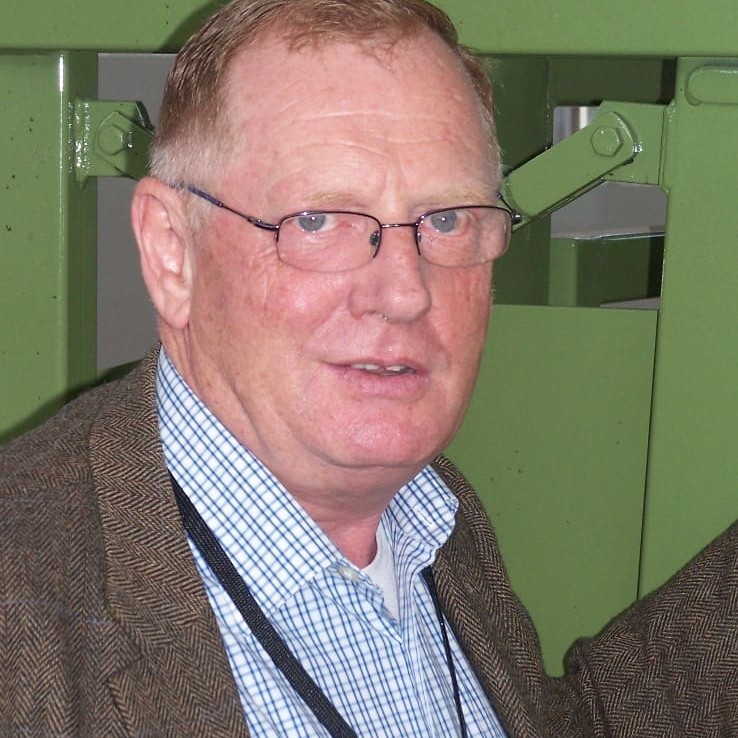 Senior MLA staffmember Tim Kelf retires from the industry service delivery company later this month after making an enthusiastic and valuable contribution to beef export trade development over the past 33 years.
Senior MLA staffmember Tim Kelf retires from the industry service delivery company later this month after making an enthusiastic and valuable contribution to beef export trade development over the past 33 years.
As highlighted in this morning’s companion article, “China beef trade rally could be ‘false dawn’,” he is the producer company’s second longest serving staffmember, starting with AMLC way back in 1979, just two years after the closure of the old Australian Meat Board.
For the record, MLA’s longest-serving staffmember is Allister Lugsdin.
To say Mr Kelf has witnessed a lot of change across the industry and international beef markets over the ensuing decades is putting it mildly.
After finishing school, he spent seven years jackarooing around British Tobacco’s beef and sheep properties across NSW, QLD and Tasmania, before returning to university, completing an Ag economics degree at Sydney Uni.
He scored his first job after graduating with AMLC in 1979, initially as a project officer in the Japan market – at that point still 11 years away from market liberalisation.
AMLC back then was still very much driven by processors, and populated largely by former processing sector staff, given that they were joint-funders of the company’s operations under the industry structures of the day.
Mr Kelf assumed market development responsibility for South East Asia in 1986, primarily focussed then on more ‘developed’ parts of the region like Singapore and Malaysia. China, Hong Kong and Taiwan and other SEA markets such as Indonesia were added to his portfolio later.
“While we did a little business development and support work on frozen beef trade, we elected very early-on to spend most of our time and money on trying to build the higher quality chilled beef trade, that wasn’t totally price driven – the business we knew we could potentially hold longer term.” he said.
The focus then spread into other markets like Hong Kong and Taiwan. Current market focusses like Indonesia and China were not on the radar in that era, considered to be too financially ‘backward’ to warrant any significant marketing input.
Some activity in Indonesia commenced in 1988, still well in advance of it’s strong growth period. “That early entry strategy gave us the dominant position in the Indonesian market which Australia continues to hold today,” Mr Kelf said.
As a general rule across Asia, he believes the best way to promote beef, rather than just relying on ‘organic’ growth, was through the nutrition message.
“Tell the Asian parents their kids will have better brain and body development through adequate sources of iron and they will jump at it. Beef is a great source of iron, and hence this is a story that has a lot of potential across the region, and could lead to beef being added to their traditional diets,” he said.
One unique nutrition-focussed project Mr Kelf managed was a pilot scheme in Taiwan. Unusually, it involved co-funding from the Australian, US, New Zealand and Canadian beef industries. The plan was to ‘grow the pie’ for all beef suppliers by using the nutrition message, rather than trying to knock each other off in country focussed marketing messages.
“It was only a tiny campaign, worth about $200,000, but it was big enough to show that there was some interest. A more significant campaign worth $4-5 million would provide a much truer indication of what could be achieved with a strong nutrition message in Asia,” he said.
While he has no specific future plans in place, Tim hopes to maintain an interest in brand positioning and supply chain development – an area for which he had a particular passion during his earlier career with MLA.
One of his ‘pet projects’, from which he extracted particular pride and satisfaction, was the formation and eight-year development of the Banksia branded beef program – a quite visionary project where producers from three large producer alliance groups in NSW and southern Queensland were linked with Warwick export processor, John Dee.
The product was taken through to one large dedicated retail supermarket customer in each of three countries – Singapore, Taiwan and Malaysia.
The producer groups involved – Double-B Beef, Border Beef and Ebor Beef, were spread across a wide geographic area to overcome season challenges, and the direct supply model straight to the retailer end-user cultivated a strong sense of brand ownership right along the chain, Mr Kelf said.
“It ran for eight years, in pretty difficult market circumstances. The timing was unfortunate, but it was a model that I think one day will be shown to be effective in the beef industry. Committed supply and joint ownership of the brand right through to the retail shelf, 12 months forward pricing, and the strong provenance story behind the brand, were just some of the program’s features,” he said.
The Banksia Beef project ultimately stalled when the price of all beef shot up dramatically and producers increasingly failed to see returns for their efforts.
